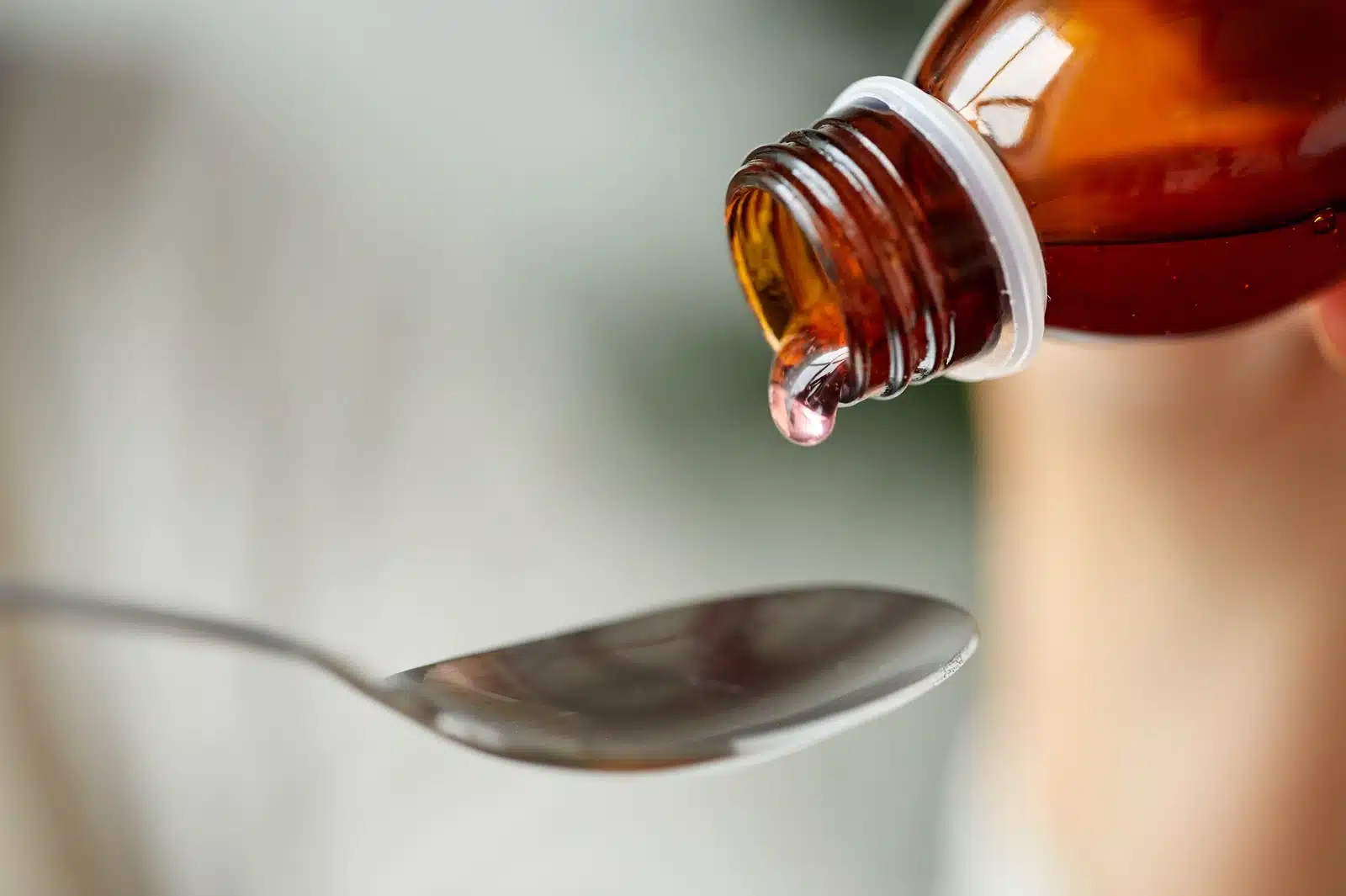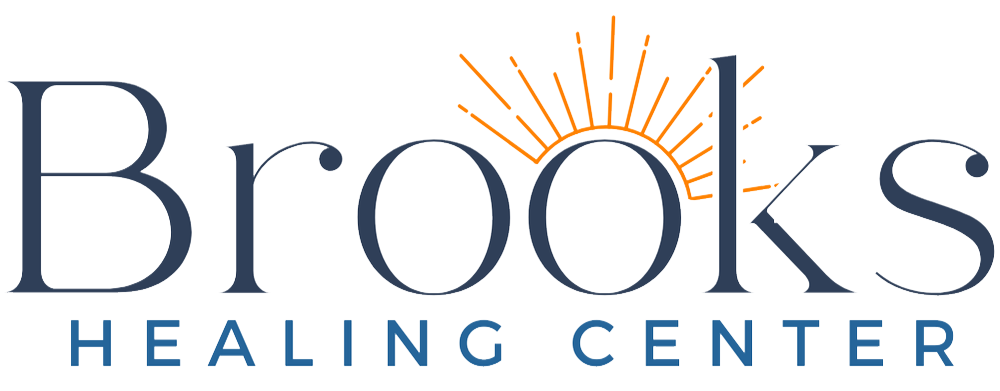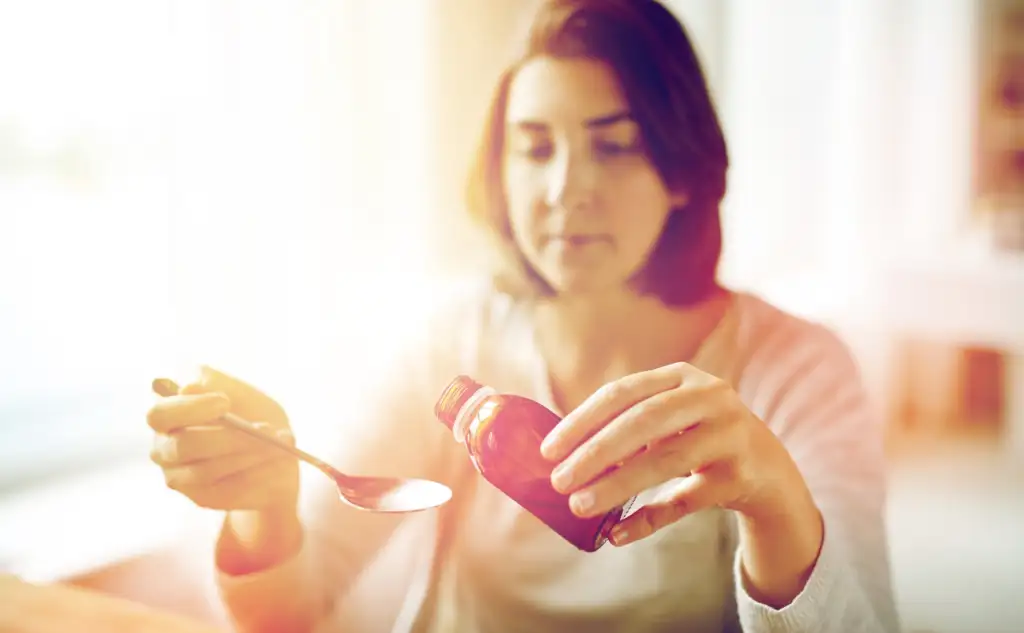Many people reach for NyQuil when illness strikes, hoping to find relief from cold and flu symptoms while getting some much-needed rest. This over-the-counter medication has become a household name, but you may have questions about its sedative effects and how it impacts sleep. Before deciding whether to take NyQuil at bedtime, it’s important to understand how this common medication works in your body and what makes it different from other cold and flu remedies.
What is NyQuil?
NyQuil is a combination medication that contains multiple active ingredients designed to treat various cold and flu symptoms.[1] The main components typically include acetaminophen for pain relief and fever reduction, dextromethorphan for cough suppression, and doxylamine succinate, an antihistamine. These ingredients work together to provide comprehensive relief during illness.
While the daytime version of NyQuil (Dayquil) leaves off the drowsiness-inducing ingredients, NyQuil intentionally includes doxylamine succinate to help people rest while sick. This antihistamine component has sedating properties similar to those found in over-the-counter sleep aids, making it particularly suitable for nighttime use. However, different varieties of NyQuil exist, and not all formulations contain the same combination of ingredients.
What Are Some Common Kinds of NyQuil?
NyQuil comes in several different formulations, each targeting specific symptoms while maintaining its signature nighttime relief properties:[2]
- Original Liquid NyQuil Cold And Flu contains the classic three-ingredient combination of acetaminophen, dextromethorphan, and doxylamine succinate for comprehensive symptom relief.
- NyQuil Severe Cold And Flu contains phenylephrine as an additional ingredient, a decongestant to relieve sinus pressure and stuffy nose.
- NyQuil Cough focuses specifically on cough suppression and contains only dextromethorphan and doxylamine succinate, making it suitable for people who want to avoid acetaminophen.
- Alcohol-Free NyQuil provides the same medication benefits as the original NyQuil but eliminates the alcohol base, making it more appropriate for those who avoid alcohol for personal or religious reasons.
- NyQuil Liquicaps offers the same ingredients as the liquid formula but in an easy-to-swallow gel capsule form for people who dislike liquid medicine.
Why NyQuil Makes You Sleepy
The drowsy feeling that comes with NyQuil is primarily due to one specific ingredient: doxylamine, which belongs to a family of medications called antihistamines.[3] Think of antihistamines as substances that block certain chemical signals in your brain that help keep you alert and awake. When these signals get blocked, your brain naturally starts to wind down, making you feel sleepy.
This sleepiness isn’t just a side effect – it’s part of NyQuil’s design. The makers of NyQuil intentionally included this ingredient to help sick people recover the rest they need. It’s similar to what you’d find in many over-the-counter sleep aids combined with other cold-fighting ingredients. The drowsiness tends to be stronger than what you might experience with regular allergy medications because doxylamine is one of the more powerful antihistamines available without a prescription.
Adding to this sleepy effect is that being sick makes most people tired. Your body naturally wants to rest when fighting an illness, and NyQuil’s sedating properties work alongside this natural response. The combination of your body’s need for sleep during illness and the medication’s sedating effects explains why many people find themselves dozing off shortly after taking NyQuil.
How Long Does Drowsiness Last?
The drowsy effects of NyQuil typically last between six to eight hours for most people, though this can vary based on several factors.[4] The primary sleep-inducing ingredient, doxylamine succinate, has a relatively long duration of action compared to other over-the-counter sleep medications.
Several personal factors influence how long you might feel drowsy:[5]
- Individual metabolism plays a major role in how quickly your body processes the medication; some people break it down faster than others.
- Your overall health status can affect the duration, as having a cold or flu may naturally make you more tired, extending the drowsy feeling.
- Dosage timing matters significantly – taking NyQuil too close to morning can result in a hangover effect that might leave you groggy the next day.
- Age and body weight can impact how long the drowsiness lasts, with older adults and those with lower body weight often experiencing longer-lasting effects.
Many doctors recommend taking NyQuil only when you have at least eight hours available for sleep. This timing helps ensure you won’t feel overly drowsy during important daytime activities like driving or working. If you need to wake up earlier, consider talking with a healthcare provider about alternative medications with shorter durations of action.
Can You Take NyQuil During the Day?
While taking NyQuil during the day is technically possible, it’s not recommended for several important reasons. Taking NyQuil during daylight hours can significantly impact your ability to function safely and effectively.
The drowsiness caused by NyQuil can impair your ability to:[6]
- Drive or operate machinery since the sedating effects can slow reaction time and decrease alertness, making these activities dangerous.
- Perform detailed work, as the medication may affect concentration and cognitive performance throughout the day.
- Make important decisions because the sedating effects can impact judgment and mental clarity.
- Stay awake during meetings or classes since fighting the medication’s sleep-inducing properties can be extremely difficult.
A better alternative is to use DayQuil during waking hours, which contains similar cold and flu-fighting ingredients but without the sedating antihistamine. This allows you to treat your symptoms while maintaining alertness. If you absolutely must take NyQuil during the day, consider talking with your healthcare provider first and plan to avoid any activities requiring mental alertness or physical coordination.
What Are Some Common NyQuil Alternatives?

For those seeking nighttime cold and flu relief but wanting to explore options beyond NyQuil, several alternatives exist in both over-the-counter and natural forms. Each option offers different benefits and may be more suitable depending on your specific symptoms and preferences:[7]
- Store brand versions contain the same active ingredients as NyQuil but typically cost less, offering identical relief at a more affordable price point.
- Robitussin Nighttime Cough provides similar symptom relief with a different combination of ingredients, which some people find more effective for their specific symptoms.
- Theraflu Nighttime Severe Cold and Cough comes in a hot liquid form that soothes the throat while delivering cold and flu-fighting medication.
- Benadryl and Tylenol combinations allow you to control your dosage of each ingredient while providing similar symptom relief to NyQuil.
- Natural alternatives such as honey, chamomile tea, and elderberry syrup can provide gentle symptom relief without medication for those preferring holistic options.
- Prescription medications from your healthcare provider might be more appropriate for severe symptoms or when over-the-counter options aren’t providing adequate relief.
- Single-ingredient sleep aids combined with daytime cold medicine can allow for more customized symptom management and better control over sedation levels.
NyQuil and Abuse Potential
NyQuil misuse can come with serious consequences. The dextromethorphan in NyQuil can produce dissociative effects at high doses, while the acetaminophen component can cause severe liver damage when overused.[8]
The medication’s accessibility and reputation as a sleep aid sometimes lead to people using it regularly for sleep rather than its intended purpose of temporary cold and flu relief. Regular misuse can result in tolerance to its sedating effects, requiring increasingly larger doses to achieve the same results. Additionally, some people might combine NyQuil with alcohol or other medications, significantly increasing the risk of dangerous side effects. Healthcare providers recommend only using NyQuil as directed on the label and seeking professional help if experiencing sleep issues or substance use concerns.
FAQ’s
How long does NyQuil take to start working?
How quickly NyQuil works for you may vary, depending on many physical factors. However, NyQuil typically begins working within 30 minutes of taking it, with most people feeling the full effects within one hour.
Is it safe to take NyQuil with other medications?
Before combining NyQuil with other medications, consult a healthcare provider since it can interact dangerously with many common drugs, especially those containing acetaminophen or other antihistamines.
Can I take NyQuil if I’m pregnant?
Pregnant women should always consult their healthcare provider before taking NyQuil, as some ingredients may pose risks during pregnancy, particularly during the first trimester.
Sources
- [1] Food and Drug Administration. (2018). Acetaminophen: Prescribing information (Label 020012s037). https://www.accessdata.fda.gov/drugsatfda_docs/label/2018/020012s037lbl.pdf
- [2] NyQuil Cough, Cold & Flu Medicine for Nighttime Symptom Relief | Vicks. (n.d.). Vicks.com. https://vicks.com/en-us/shop-products/nyquil on December 17, 2024
- [3] Doxylamine: MedlinePlus Drug Information. (n.d.). Medlineplus.gov. https://medlineplus.gov/druginfo/meds/a682537.html on December 17, 2024
- [4] Drugs.com. (2024). How long does Nyquil last? Drugs.com. https://www.drugs.com/medical-answers/long-nyquil-3566188/ on December 17, 2024
- [5] Vicks. (2019). Vicks.com. https://vicks.com/en-us/safety-and-faqs/faqs/vicks-nyquil-faq on December 17, 2024
- [6] Nyquil Cold and Flu Uses, Side Effects & Warnings. (n.d.). Drugs.com. https://www.drugs.com/mtm/nyquil-cold-and-flu.html on December 17, 2024
- [7] Mayo Clinic Health System. (2022). Primary Care in Rochester and Kasson. Mayo Clinic Health System. https://communityhealth.mayoclinic.org/featured-stories/cold-flu-covid-symptom-relief on December 17, 2024
- [8] DXM, CCC, triple C, Skittles, robo, poor man’s PCP. (n.d.). https://www.deadiversion.usdoj.gov/drug_chem_info/dextro_m.pdf on December 17, 2024

